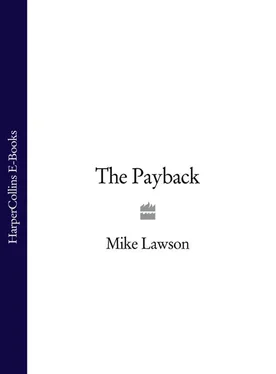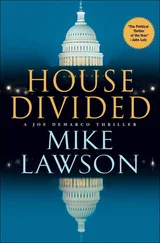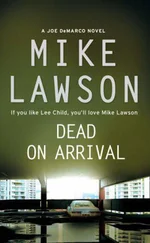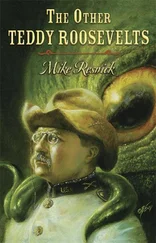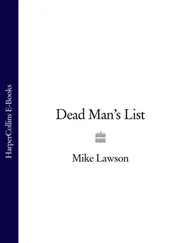1 ...7 8 9 11 12 13 ...18 As usual she began without any sort of greeting. ‘What will you do now?’ she said.
‘Wait. Just lay back and wait.’
She stared at him a moment then nodded.
‘Did he talk to anyone before he left the shipyard?’
‘I don’t know.’
‘You have to control those fools,’ she said.
‘Hey! I didn’t recruit them,’ Carmody said.
‘They’re your responsibility,’ she snapped.
She was right about that.
‘How long do you think we’ll have to wait?’
Carmody shrugged. ‘Maybe a month.’
She paused a beat then nodded. One thing Carmody liked about her – maybe the only thing – was that she didn’t waste time nagging at him, telling him that she wasn’t happy with the delay.
Apparently having nothing more to ask him, or further instructions to give him, she opened the door and started to leave the car.
‘There’s something else you need to know,’ Carmody said.
Dave Whitfield had been stabbed to death.
He had called DeMarco’s cell phone at exactly 8:10 a.m. and had left the shipyard twenty-eight minutes later. No one knew for sure why he had left when he did or where he was going, but DeMarco had an idea. DeMarco figured that when Whitfield had not been able to communicate with him by cell phone when he was on the fishing boat, Whitfield had left the shipyard to go to DeMarco’s motel, thinking that at that hour DeMarco might still be there, if not in his room, then maybe having breakfast.
Whitfield’s car had been parked in a small lot three blocks from the shipyard. The lot had space for six or seven cars, and to reach the lot, Whitfield had to walk down an alley. The parking lot itself was the backyard of a private home; the home owner had concluded long ago that charging shipyard workers eight bucks a day for parking was more enjoyable than mowing a lawn. The parking lot was visible only to people walking down the alley and to the owner of the lot if he happened to be looking out one of his back windows.
Whitfield had been killed in the parking lot, and based on the temperature of his liver and other factors that came to light later, the time of death was established at approximately nine a.m. He had been stabbed once and the weapon used, presumably a long-bladed knife, had entered his rib cage, slid between his ribs, and severed his aorta. After he was killed, his wallet and watch were taken and his body was shoved under his car. The body wasn’t discovered until noon when another shipyard worker went to the parking lot during his lunch break.
In the two days following the killing, Frank Hathaway showed exactly how much muscle an angry Secretary of the Navy could flex. A squad of investigators from NCIS descended on the shipyard like winged furies and a large navy poker was jammed up the local police chief’s ass to prod him into action. Two FBI agents were also diverted from the Bureau’s Seattle office to Bremerton. The FBI’s jurisdiction was questionable as the killing had occurred on city – vice federal – property, but since Hathaway was the one demanding action they had decided to engage.
DeMarco and Emma were interviewed several times. As they had no reason not to cooperate they told the assorted groups of cops what they knew. The last phone call DeMarco had received from Whitfield was naturally of particular interest but the only thing DeMarco could tell them was that he thought Whitfield had been talking about Norton and Mulherin, but nothing Whitfield had said, or that DeMarco had heard over the poor connection, had led him to conclude that Whitfield had discovered anything that would be a motive for murder.
‘Look,’ DeMarco told the investigators, ‘this whole thing with Whitfield was him thinking these two guys were doing a shitty job and making more money than they should have. I don’t know why he called me, but we didn’t find any evidence that anything illegal was going on, and we sure as hell didn’t find anything worth killing somebody over.’
Norton, Mulherin, and Carmody were interrogated by navy and federal investigators and by city detectives. Alibis were asked for and verified. Whitfield’s coworkers and neighbors were questioned, evidence was collected from the scene of the crime, and the neighborhood where Whitfield had been killed was canvassed by teams of cynical cops.
Norton and Mulherin were cleared almost immediately. At the time of Whitfield’s death, they had been inside the shipyard and were seen by approximately twenty people. On top of alibis provided by multiple eyewitnesses, the two men also had an electronic alibi: to enter or exit the shipyard, employees had to swipe their badges through bar-code readers installed at all the shipyard gates. The bar-code readers provided the exact time Whitfield had left the shipyard and verified that Mulherin and Norton had entered the shipyard at 7:00 a.m. and remained there all day, Mulherin leaving at 3:59 p.m. and Norton at 5:30 p.m.
Phil Carmody was also eliminated as a murder suspect, although his alibi was not as airtight as that of his employees. He had been having breakfast at the time of the killing and the restaurant where he had eaten was only five minutes by car from the parking lot where Dave Whitfield had died. But for Carmody to have killed Whitfield, he would have to have been missing from the restaurant for almost fifteen minutes – five minutes to get to the parking lot, two or three minutes to kill Whitfield and hide his body, and five minutes to get back to the restaurant. The waitress who had waited on Carmody didn’t think there was any fifteen-minute period when he was out of her sight, and she remembered refilling his coffee cup at least twice while he was eating. The waitress did say that Carmody had been seated near the rear exit of the restaurant.
Mahoney, as DeMarco had expected, irrationally blamed him for Whitfield’s death.
‘What the fuck did you do, Joe?’ Mahoney had screamed. ‘Goddamnit, all Hathaway wanted was for you to check out some pissant navy contract thing, and the next thing you know, his nephew’s dead. You musta done something.’
DeMarco wasn’t sure that he’d done anything to cause Whitfield’s death, but not returning Whitfield’s phone call that morning had been a mistake. As he had told the cops, he had no facts to connect Whitfield’s death with Norton’s and Mulherin’s activities, but the timing of the phone call was disturbing. DeMarco couldn’t leave Bremerton until he could explain why Dave Whitfield had been killed.
Emma, who could have left had she wanted to, also decided to stay. Something was bothering her – something other than the fact that Dave Whitfield had been killed – but she wouldn’t tell DeMarco what it was.
Forty-eight hours after Dave Whitfield died, the Bremerton cops arrested a man for his murder.
Jerry Brunstad, Bremerton’s chief of police, was a paunchy man with a sunburned face, too much dyed-black hair, and long sideburns; DeMarco thought he looked like an Elvis impersonator with a badge. Brunstad’s blue uniform shirt was snug across his belly and when he raised his right arm to use the pointer, a shirttail came out the back of his pants. He was using the pointer to direct attention to a white board that listed the evidence his men had acquired on Dave Whitfield’s killer. His audience consisted of seven people: Richard Miller, who was in charge of security at the shipyard; two FBI agents; two NCIS agents; and Emma and DeMarco. It had taken a phone call from the Speaker’s office for Emma and DeMarco to be allowed to attend the briefing.
According to Chief Brunstad, Whitfield had been murdered by a man named Thomas ‘Cowboy’ Conran. Conran was an easily recognizable, thirty-nine-year-old street person. He was six foot four, scarecrow thin, and always wore a battered black cowboy hat pulled down low on his forehead, making him look like a demented, undernourished Tim McGraw. Conran had been diagnosed as a schizophrenic in his teens and when he was off his meds – which was almost all the time – was known to act in an irrational, often violent manner.
Читать дальше
